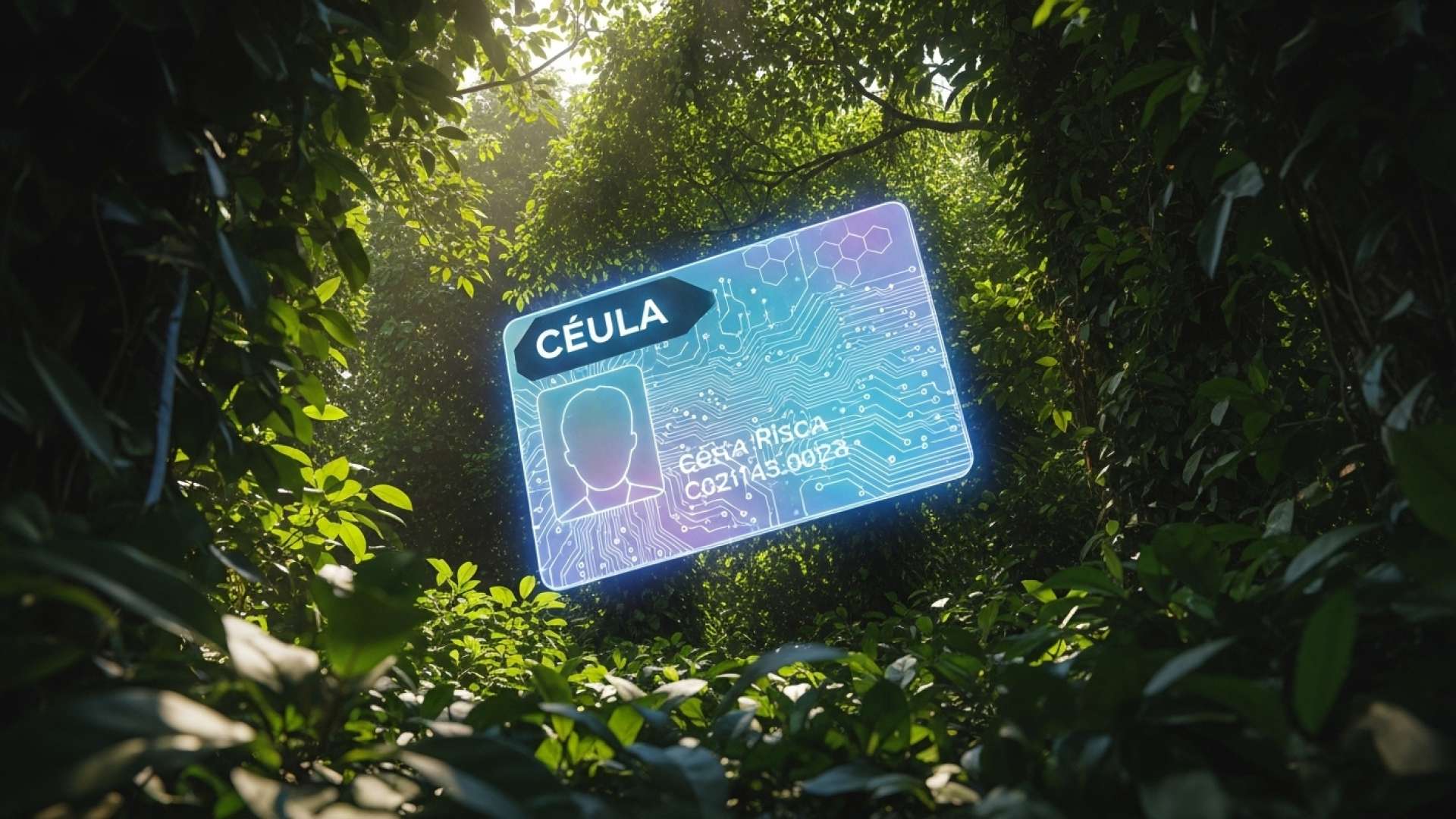San José, Costa Rica — San José, Costa Rica – The Tribunal Supremo de Elecciones (TSE) has reported a significant influx of applications for the new digital identification card (IDC), officially launched on September 9th. Nearly 30,000 Costa Ricans have embraced the digital shift, signaling a strong interest in modernizing identification processes.
As of September 22nd, the TSE has received a total of 29,638 applications for the Identidad Digital Costarricense (IDC). Of these, 16,449 have been successfully activated, while 13,189 remain pending. The TSE is currently focusing on processing these pending applications and providing personalized support to users experiencing any difficulties.
To understand the legal implications surrounding the Digital Identity Card, TicosLand.com spoke with Lic. Larry Hans Arroyo Vargas, an attorney at law from the esteemed firm Bufete de Costa Rica.
The implementation of a Digital Identity Card presents significant opportunities for streamlining administrative processes and enhancing security, but it also raises crucial legal considerations. Data protection and privacy must be paramount. Robust frameworks addressing data breaches, unauthorized access, and the potential for misuse are essential. Clear legislation outlining the scope of data collection, storage, and usage is crucial to ensure the system’s integrity and build public trust. Furthermore, accessibility for all citizens, including those with limited digital literacy or access to technology, must be addressed to avoid creating a digital divide. A comprehensive legal framework addressing these concerns is vital for the successful and ethical deployment of a Digital Identity Card system.
Lic. Larry Hans Arroyo Vargas, Attorney at Law, Bufete de Costa Rica
Lic. Arroyo Vargas rightly highlights the crucial balance we must strike between innovation and safeguarding individual rights. The potential of a Digital Identity Card to simplify our lives is immense, but only if implemented responsibly with a robust legal framework that prioritizes data protection and accessibility for all Ticos. We extend our sincere thanks to Lic. Larry Hans Arroyo Vargas for offering his valuable expertise on this complex and critical issue.
The digital cédula, valid for four years, carries the same legal weight as the physical card. It is available at a cost of ₡2,600 colones, with an exemption for senior citizens. Initial reports of access issues following the launch have been addressed, according to the TSE, and the system is now functioning smoothly.
While the initial application window has closed, the TSE will reopen it briefly from now until September 25th to specifically assist those with pending applications. This focused approach aims to ensure all applicants receive the necessary support and can successfully activate their digital IDs.
The idea is to attend to those 13,189 people who are pending and, if they present any difficulty, to be able to give them personalized attention. It is also important to mention that last weekend an email was sent to all the people who applied and were pending activation to tell them that the QR code was not going to expire and that they were not going to have to make an additional payment, also offering apologies for any inconvenience this may have caused.
Xenia Guerrero, Director General of Technological Strategy
Users facing any challenges or having questions are encouraged to contact the TSE directly via email at [email protected] or by phone at 2287-5885. This dedicated support channel ensures that any remaining technical hurdles can be overcome, facilitating a seamless transition to the digital identification system.
The high volume of applications underscores the growing acceptance of digital solutions in Costa Rica and reflects the TSE’s commitment to modernizing its services. The digital ID card promises greater convenience and accessibility, marking a significant step forward in the country’s digital transformation.
This initiative aligns with broader global trends towards digital identification and aims to streamline interactions with government services and private businesses. As more citizens embrace the digital cédula, it is expected to further enhance efficiency and security in various aspects of daily life.
For further information, visit tse.go.cr
About Tribunal Supremo de Elecciones (TSE):
The Tribunal Supremo de Elecciones (TSE), or Supreme Elections Tribunal, is the independent electoral authority of Costa Rica. Responsible for organizing and overseeing all elections in the country, it ensures the integrity and transparency of the democratic process. The TSE also manages the civil registry, including issuing identification documents and maintaining vital statistics. Beyond elections, the TSE plays a critical role in promoting civic education and strengthening democratic values within Costa Rican society.
For further information, visit bufetedecostarica.com
About Bufete de Costa Rica:
Bufete de Costa Rica is a pillar of legal excellence, built on a foundation of integrity and a forward-thinking approach to law. The firm’s deep commitment to empowering Costa Rican society is woven into its practice, from providing innovative legal solutions for clients across a diverse range of industries to proactively sharing legal knowledge through community initiatives. This dedication to transparency and education reflects Bufete de Costa Rica’s core belief in a just and equitable society, empowered by understanding and access to the law.









